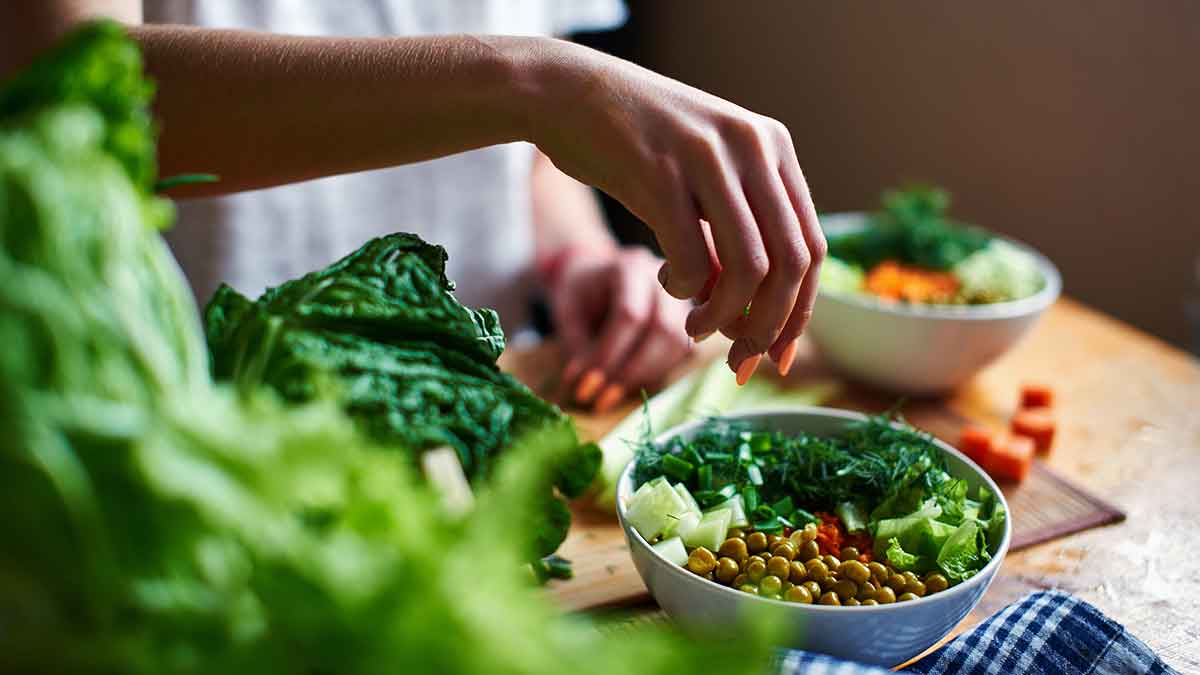Filling a prescription for ‘Food as Medicine’ may help support overall health
For those who are food insecure, COVID-19 has been especially challenging. In fact, the Atlanta Community Food Bank has seen an astounding 300% rise in people asking for help with food during the pandemic.
At Grady Health System, a premier level I trauma center in downtown Atlanta, they see this need in half of their patient population — a number that rises to 63% for patients diagnosed with diabetes. As access to healthy food is a main social determinant of health, those who are food insecure may also be at an increased risk for a number of negative health outcomes.
To address this need, UnitedHealthcare Community & State provided a $95,000 grant for Grady Health System, Atlanta Community Food Bank and local nonprofit Open Hand to create the Food as Medicine partnership. The program focuses on making sure patients and their families have access to healthy food that aligns with their specific dietary needs.
Through the partnership’s innovative, on-site Food as Medicine Center (known as the Jesse Hill Market), patients have access to a food pharmacy, farmer’s market, café and teaching kitchen. This puts food directly in the hands of those who need it during their care visit at Grady Hospital.

When a patient visits their primary care physician, they’re screened for food insecurity. If the patient is positive for food insecurity and has uncontrolled diabetes or high blood pressure, the patient will receive a referral to the Food as Medicine program at Jesse Hill Market, which allows the patient to be enrolled in the program for up to one year. Once enrolled, the patient will receive about 20 pounds of fresh fruits and vegetables, along with about 5 pounds of dry beans, peas, and whole grains per household every 2 weeks for a year, for the duration of the program from the food pharmacy. The goal is to provide more plant-based foods to aid patients in better management of their diabetes and high blood pressure.
The center’s on-site teaching kitchen managed by a Registered Dietitian offers free classes that show patients how to prepare the foods included in their pharmacy boxes. This helps reduce food waste, provides a fun and interactive educational experience to encourage healthy eating, and ensures that individuals will not only have food, but will also enjoy eating it and begin to manage their disease states better.
Finally, the Food as Medicine Center café and farmers market offers healthy and nutritious meals to Grady’s 7,000 employees and visitors to the hospital, with all profits running back to the program.
Since opening in August 2020, Grady has been collecting data and anticipates that screening results will begin to stabilize as individuals regularly connect with the food pharmacy. During this first year, Grady will also be working to ensure that the initiative is getting the right produce to the right patients, in addition to gauging the program’s ease of use and effectiveness among patients, providers and nutritionists. They will also continue to assess health outcomes on a six-month basis, as the program becomes more established.
Within the first three years of operation, Grady anticipates that more than one million pounds of food will be distributed to 8,000 patients and 16,000 household members through the food pharmacy.
Through this innovative approach, the partnership has created an opportunity to not only empower patients to take advantage of healthy choices outside of a health care setting but will allow them to take better control of their health long term.

